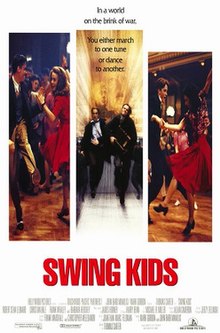
Triumph of the Will is a 1935 German Nazi propaganda film directed, produced, edited and co-written by Leni Riefenstahl. Adolf Hitler commissioned the film and served as an unofficial executive producer; his name appears in the opening titles. It chronicles the 1934 Nazi Party Congress in Nuremberg, which was attended by more than 700,000 Nazi supporters. The film contains excerpts of speeches given by Nazi leaders at the Congress, including Hitler, Rudolf Hess and Julius Streicher, interspersed with footage of massed Sturmabteilung (SA) and Schutzstaffel (SS) troops and public reaction. Its overriding theme is the return of Germany as a great power with Hitler as its leader. The film was produced after the Night of the Long Knives, and many formerly prominent SA members are absent.

The Great Dictator is a 1940 American anti-war political satire black comedy film written, directed, produced, scored by, and starring British comedian Charlie Chaplin, following the tradition of many of his other films. Having been the only Hollywood filmmaker to continue to make silent films well into the period of sound films, Chaplin made this his first true sound film.

The Hitler Youth was the youth organisation of the Nazi Party in Germany. Its origins date back to 1922 and it received the name Hitler-Jugend, Bund deutscher Arbeiterjugend in July 1926. From 1936 until 1945, it was the sole official boys' youth organisation in Germany and it was partially a paramilitary organisation. It was composed of the Hitler Youth proper for male youths aged 14 to 18, and the German Youngsters in the Hitler Youth for younger boys aged 10 to 14.

Johan Marius Nicolaas Heesters, known professionally as JohannesHeesters, was a Dutch actor of stage, television and film, as well as a vocalist of numerous recordings and performer on the concert stage with a career dating back to the 1920s. He worked as an actor until his death and was one of the oldest performing entertainers in history, performing shortly before his death at the age of 108. Heesters was almost exclusively active in the German-speaking world from the mid-1930s and became a film star in Nazi Germany, which later led to controversy in his native country. He was able to maintain his popularity in Germany in the decades until his death.

Education for Death: The Making of the Nazi is an American animated propaganda short film produced by Walt Disney Productions and released on January 15, 1943, by RKO Radio Pictures, shown in theaters with Fighting Frontier. The film is directed by Clyde Geronimi and principally animated by Milt Kahl, Ward Kimball, Frank Thomas, and Bill Tytla. The short is based on the non-fiction book of the same name by American author Gregor Ziemer. The film features the story of Hans, a boy born and raised in Nazi Germany, his indoctrination in the Hitlerjugend, and his eventual march to war.
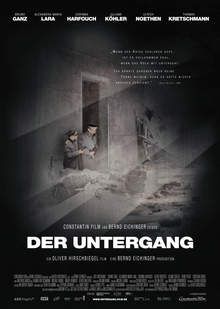
Downfall is a 2004 historical war drama film written and produced by Bernd Eichinger and directed by Oliver Hirschbiegel. It is set during the Battle of Berlin in World War II, when Nazi Germany is on the verge of total defeat, and depicts the final days of Adolf Hitler. The cast includes Alexandra Maria Lara, Corinna Harfouch, Ulrich Matthes, Juliane Köhler, Heino Ferch, Christian Berkel, Alexander Held, Matthias Habich, and Thomas Kretschmann. The film is a German-Austrian-Italian co-production.
The Swing Youth were a youth counterculture of jazz and swing lovers in Germany formed in Hamburg in 1939. Primarily active in Hamburg and Berlin, they were composed of 14- to 21-year-old Germans, mostly middle or upper-class students, but also including some in the working class. They admired the "American way of life", defining themselves in swing music and opposing Nazism, especially the Hitler Youth. They loosely structured themselves into “clubs” with names such as the Harlem Club, the OK Gang, and the Hot Club. This underground subculture, distinctly nonconformist with a focus on African-American music, was active in the German youth scene. Despite being largely apolitical and unstructured, the Swing Youth were targeted and, in some cases, repressed by the Nazi government.

Heinrich Wilhelm "Heinz" Rühmann was a German film actor who appeared in over 100 films between 1926 and 1993. He is one of the most famous and popular German actors of the 20th century, and is considered a German film legend. Rühmann is best known for playing the part of a comic ordinary citizen in film comedies such as Three from the Filling Station and The Punch Bowl. During his later years, he was also a respected character actor in films such as The Captain from Köpenick and It Happened in Broad Daylight. His only English-speaking movie was Ship of Fools in 1964.

The Deutsches Jungvolk in der Hitlerjugend was the separate section for boys aged 10 to 13 of the Hitler Youth organisation in Nazi Germany. Through a programme of outdoor activities, parades and sports, it aimed to indoctrinate its young members in the tenets of Nazi ideology. Membership became fully compulsory for eligible boys in 1939. By the end of World War II, some had become child soldiers. After the end of the war in 1945, both the Deutsches Jungvolk and its parent organization, the Hitler Youth, ceased to exist.
Alfons Heck was a Hitler Youth member who eventually became a Hitler Youth Officer and a fanatical adherent of Nazism during the Third Reich.

Otto Karl Robert Wernicke was a German actor. He is best known for his role as police inspector Karl Lohmann in the two Fritz Lang films M and The Testament of Dr. Mabuse.
Censorship in Nazi Germany was extreme and strictly enforced by the governing Nazi Party, but specifically by Joseph Goebbels and his Reich Ministry of Public Enlightenment and Propaganda. Similarly to many other police states both before and since, censorship within Nazi Germany included both domination and propaganda weaponization by the State of all forms of mass communication, including newspaper, music, literature, radio, and film. The Ministry of Propaganda also produced and disseminated their own literature over the mass media which was solely devoted to furthering Nazi ideology and the Hitler Myth. Crudely drawn caricatures intended to dehumanize the Party's political opponents and to inflame Antisemitism lay at the core of the Ministry's propaganda, especially in 1940 films such as Jud Süß and The Eternal Jew. The Ministry also promoted a secular messianic cult of personality surrounding Adolf Hitler with early films such as Triumph of the Will of the 1934 rally and The Victory of Faith made in 1933, and which survives now after a single copy recently discovered in the UK. It was later banned by the Ministry owing to the prominent role in the film of Ernst Roehm, who was later murdered in the political purge known as the Night of the Long Knives in 1934.

Negermusik was a derogatory term used by the Nazi Party during the Third Reich to demonize musical styles that had been invented by black people such as blues and jazz. The Nazi Party viewed these musical styles as degenerate works created by an "inferior" race and they were therefore prohibited. The term, at that same time, was also applied to indigenous music styles of black Africans.
Hans-Otto Borgmann was a German film music composer during the Third Reich.

The Journey to Tilsit is a 1939 German drama film directed by Veit Harlan and starring Kristina Söderbaum, Philip Dorn and Anna Dammann.
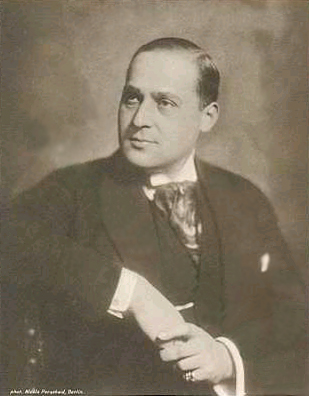
Felix Basch (1885–1944) was an American-Austrian actor, screenwriter and film director.

The Nazi salute, also known as the Hitler salute, or the Sieg Heil salute, is a gesture that was used as a greeting in Nazi Germany. The salute is performed by extending the right arm from the shoulder into the air with a straightened hand. Usually, the person offering the salute would say "Heil Hitler!", "Heil, mein Führer!", or "Sieg Heil!". It was officially adopted by the Nazi Party in 1926, although it had been used within the party as early as 1921, to signal obedience to the party's leader, Adolf Hitler, and to glorify the German nation. The salute was mandatory for civilians but mostly optional for military personnel, who retained a traditional military salute until the failed assassination attempt on Hitler on 20 July 1944.
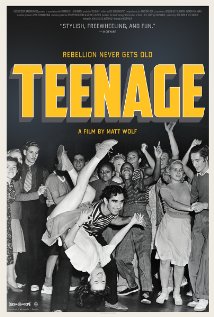
Teenage is a 2013 documentary film directed by Matt Wolf and based on Jon Savage's book Teenage: The Creation of Youth Culture. In the documentary, Wolf attempts to bring to life the "prehistory" of youth culture which preceded and evolved into the concept of teenage culture in the 1950s and beyond. The film had its world premiere at the Tribeca Film Festival on April 20, 2013. and was released in a limited release and through video on demand on March 14, 2014, by Oscilloscope Laboratories.
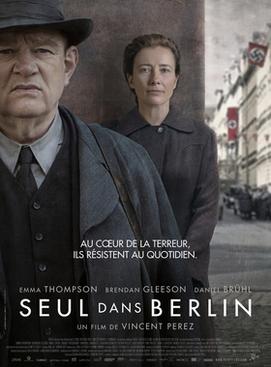
Alone in Berlin is a 2016 war drama film which was directed by Vincent Pérez and written by Pérez and Achim von Borries. It is based on the 1947 fictionalised true story Every Man Dies Alone, by Hans Fallada. The novel's characters Otto and Anna Quangel are based on Otto and Elise Hampel. When their son dies in France, the couple start writing postcards to urge people to protest against Adolf Hitler and the Nazi regime. The film stars Emma Thompson, Brendan Gleeson, Daniel Brühl, and Mikael Persbrandt. Principal photography began on 27 March 2015 in Berlin. It was selected to compete for the Golden Bear at the 66th Berlin International Film Festival.

Ripening Youth is a 1933 German drama film directed by Carl Froelich and starring Heinrich George, Peter Voß and Hertha Thiele.
